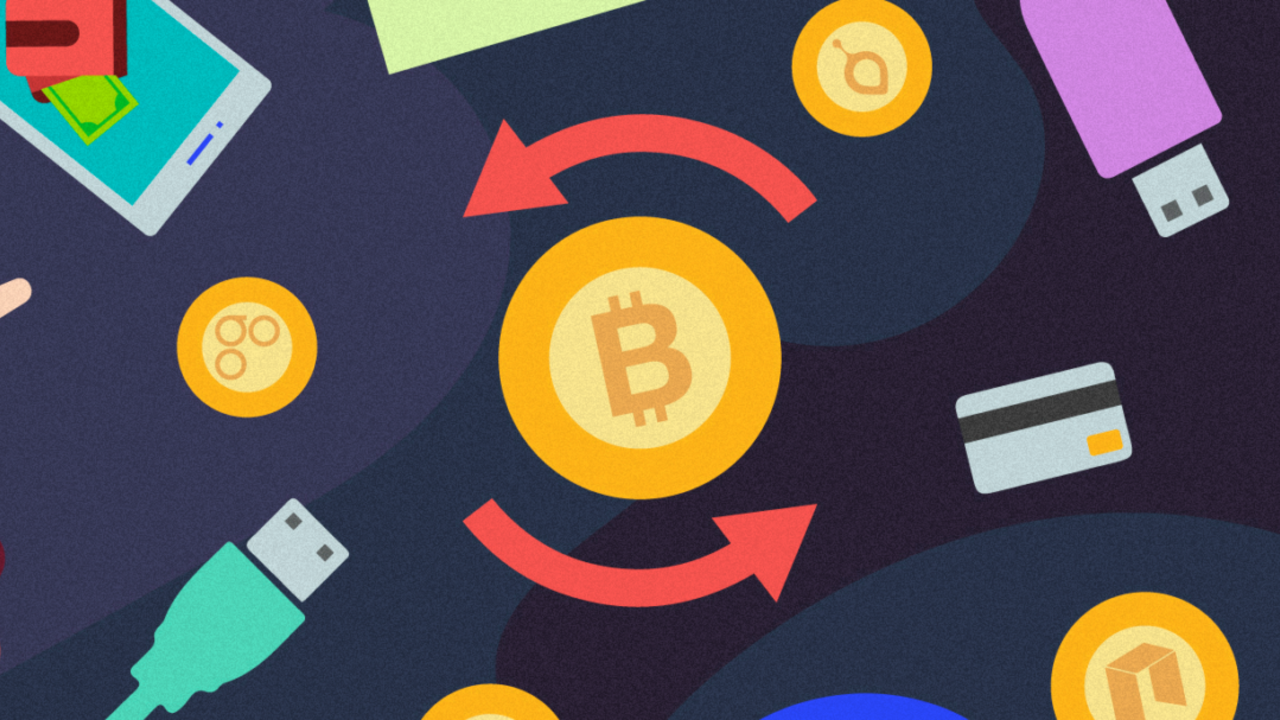The mainstream adoption of cryptocurrencies skyrocketed in 2017. At the same time, millions of people all over the world started investing in digital coins. Huge hype and supporting technologies allowed emerging technology to soar in popularity. One of the key technologies that enabled this enormous expansion was the cryptocurrency wallet, whose development started in 2012.
Bitcoin wallets today are available in a wide range of sizes and shapes. Startups and businesses are looking for opportunities to invest in and profit from this new currency movement.
Let’s discuss how to use your own wallet to enter the cryptocurrency market with that in mind. With the help of the right Crypto wallet development service how you can enjoy the smooth flow of transactions without any problems easel for longer durations.
What is a Wallet for Cryptocurrencies?
The fundamentals come first: what is a cryptocurrency wallet?
Your cryptocurrency is stored in a wallet, which functions somewhat like a bank account. It makes it simple to send, receive, and exchange cryptocurrencies while also informing you how much cryptocurrency you currently own and its value in various other currencies.
However, you should be aware that a cryptocurrency wallet does not actually hold your cryptocurrency. Technically, every cryptocurrency is kept in a blockchain, which acts as a ledger for each coin.
Cryptocurrency wallets are comparable to bank accounts in this way. When it says you have $1,000 in your bank account, it doesn’t necessarily mean that money is actually in an account with your name on it. This indicates that your bank has $1,000,000 in assets, of which you own $1,000. Your account gives you access to and control over the money, but it doesn’t hold it.
The same idea also applies to wallets for cryptocurrencies. Similar to an account, they keep the data proving you own cryptocurrency. The blockchain stores data about how much cryptocurrency you own, like a bank!
Similar to a bank, losing track of your account information can result in you losing your cryptocurrency. Someone can claim ownership of your cryptocurrency if they steal the data proving it is yours. Since cryptocurrencies aren’t as well-established as banks are (by design, to be clear), it is up to cryptocurrency wallets to keep your cryptocurrencies secure.
Apart from storing the data proving your ownership of your cryptocurrency, a cryptocurrency wallet doesn’t necessarily have any other distinguishing features. Technically, you could write that information on a piece of paper, which would then serve as your wallet (just be careful not to lose it!).
While keeping your cryptocurrency on paper is undoubtedly one of the safest ways to store it, this method is featureless. It is only capable of “receiving” and storing cryptocurrency. Therefore, those who want to develop cryptocurrency wallets must:
Create an application or device that stores a person’s cryptocurrency data.
Make sure that the security of this data is as high as possible.
Include features that distinguish their cryptocurrency wallet from alternatives.
Because many people struggle to comprehend the idea and use their wallets, ease-of-use is an essential component of a cryptocurrency wallet.
The various Types of Wallets for Cryptocurrencies
As previously stated, a cryptocurrency wallet can be anything that houses the data proving you are the owner of your cryptocurrency, even a piece of paper. Companies developing cryptocurrency wallets won’t sell paper.
The four most popular types of cryptocurrency wallets on the market right now are listed below. Each has advantages, disadvantages, and risks. The more complex and constrained something is, similar to most technology, the more secure it is. Select a format that balances these elements and best serves your objectives.
Web
The same factors that make SaaS and other web-based apps popular also make web-based cryptocurrency wallets popular. They’re simple to use, accessible on all of your devices, and functional regardless of the user’s computing or storage capacity.
The problem with web wallets is that they sometimes have fewer features and less security. Given that consumers prefer downloadable mobile apps, it might be difficult to convince users to use them.
Mobile
Thus, mobile cryptocurrency wallets come into play. Unsurprisingly, these are the ones that crypto users find to be the most appealing. They use smartphone hardware, are easy to use, and are portable (like NFC or Bluetooth).
Mobile wallets do have the disadvantage of frequently becoming locked to a user’s phone, though. Additionally, there is a tonne of malware that masquerades as a mobile cryptocurrency wallet due to the widespread use of mobile devices today. Along with maintaining security, you must let users know that your wallet is as secure as it claims to be.
Desktop
The most feature-rich cryptocurrency wallets are typically desktop ones. These keep all of your cryptocurrency on your computer, much like a mobile wallet. Although they provide many of the same advantages as a web-based wallet, these wallets operate without an internet connection.
Desktop wallets have the advantages of being safe, targeted at tech-savvy users, and possessing a sense of authenticity that mobile and web apps typically lack. Consider the distinction between Fidelity Investments and an app like Acorns. One is friendlier and more robust than the other.
Desktop wallets, however, may also run into trouble because of this. People who are tech savvy are no longer the only ones using cryptocurrency. Users may therefore find desktop wallets intimidating, assuming they even know they exist.
Hardware
The hardware wallet is the final variety of cryptocurrency wallets. It functions essentially the same as a paper wallet and is arguably the “classiest” way to store your cryptocurrency.
Most hardware wallets are simply plug-in, physical devices that store information proving you are the rightful owner of your cryptocurrency (your address and keys). They typically have a small LED screen and resemble flash drives or portable hard drives. This screen displays your address, key, and current cryptocurrency holdings.
Since they are not intended to connect to the internet, these wallets typically don’t perform any additional functions. Additionally, these devices typically use encryption, which greatly enhances their security. But if someone loses their encryption password, they’ll probably also lose their cryptocurrency.
Hardware wallets are therefore excellent for stablecoin holders who are concerned about security. However, those who want to trade unstable crypto assets will benefit more from a more adaptable solution.
Cryptocurrency Wallets’ Hot and Cold differences
When you start creating cryptocurrency wallets, you’ll discover that the various wallet types can be roughly divided into two groups:
- The internet-connected wallets
- Wallets without an internet connection
These are cryptocurrency wallets that are “hot” and “cold.” Hot wallets are web-connected and concentrate on providing users with features and ease of use. On the other hand, cold wallets are employed for long-term security and storage. They typically require more effort to use but provide greater peace of mind.
The development of a cryptocurrency wallet should focus on these six factors:-
The User’s Consent
Your team must offer your users a high level of security, just like any other service that depends on security. Although cryptocurrency isn’t quite as risky as it was a few years ago, it should still be protected as though it were a financial asset. It’s crucial to keep everything encrypted, secured by logins and two-factor authentication, and to set up a reliable account recovery procedure.
Remote Access
A non-custodial wallet is necessary for offline access to a cryptocurrency wallet. Additionally, a hardware wallet, computer, or smartphone must be used to store a person’s address and keys.
When creating a cryptocurrency wallet, taking into account offline access can result in features like offline crypto transfers and more secure crypto storage.
Capabilities For Scanning QR codes
The development of cryptocurrency wallets has a lot of potential thanks to QR codes and NFC tags. They enable contactless money transfers, which have already begun to take the place of actual credit and debit cards.
A great way to embrace the techy side of this technology and be useful for P2P payments is to use NFC and QR codes as a method of a cryptocurrency payment.
Notifications of Transactions
Cryptocurrency is no different from other payment apps in that it should have some sort of transaction notification system. Notifications serve as a confirmation and a form of security. Additionally, they can inform users when the value of the assets they hold has increased or decreased on exchange platforms like Coinbase.
Features of Trading and Exchange
As was already stated, the majority of cryptocurrencies have not yet reached a stable value point. And they will probably stay that way until they are widely accepted by customers, companies, and governments.
Until then, a large portion of your users will probably use cryptocurrencies as tradable assets rather than as money. This makes it worthwhile to think about including trading and exchange features in your platform. Users will probably want to exchange their cryptocurrency for fiat money until it becomes widely used as a payment method. So it would be wise to think about having a system in place for doing so.
Integration with Payment Gateways
Finally, you should think about integrating your cryptocurrency wallet with a payment processor like PayPal. In contrast to alternatives that appear to lock your cryptocurrency into an app, it can help legitimize your wallet and make it more appealing.
Final Words:-
You might even consider developing or integrating with a platform for blockchain payments. The popularity of these services is rising as cryptocurrencies gain more mainstream acceptance. If you starting from scratch or don’t know how to start then take expert blockchain consulting firm services for the right start.








